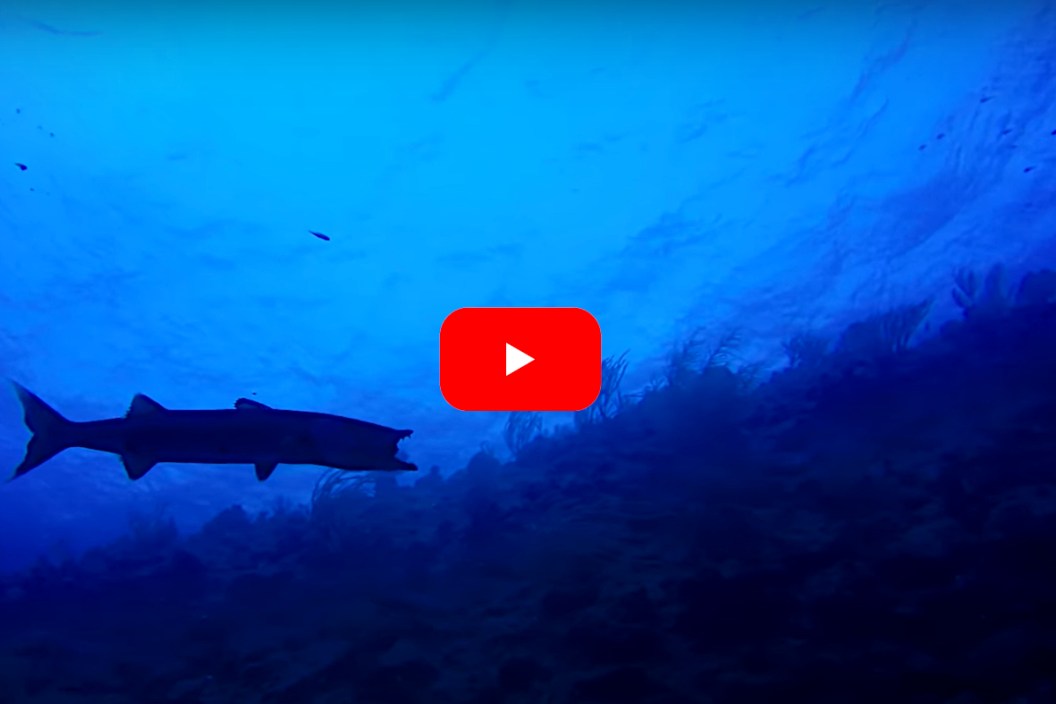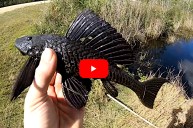This barracuda makes short work of an invasive lionfish.
Spearfishing is an incredibly fun and personal way to catch a mess of fish for the dinner plate. It is also a great way to remove invasive fish populations that have a negative effect on the ecosystems and fisheries. One of those invasive fish species is the red lionfish.
These reef fish are normally native to the coastal waters of the Pacific and Indian Oceans. Unfortunately, sometime in the 1980s, they made their way to the waters of Florida, likely as a byproduct of them being popular in the aquarium trade.
One of the most effective ways of combating the lionfish invasion has been through spearfishing. In this video, a scuba diver nails one off a coral reef only to have a hungry barracuda swipe it right off his spear. In less than 30 seconds, the barracuda bites the lionfish in half and swallows the pieces up whole.
Since the first sightings in 1985, lionfish populations have exploded in the Caribbean, Atlantic Ocean, the Gulf of Mexico, and the Bahamas. They have been slowly expanding their range to South and North Carolina and even as far as Bermuda. Their presence is harmful to reef ecosystems since they have few natural predators here and wildlife officials worry the invasive species could change the makeup of some reefs completely due to their predation on native species of fish.
The primary species causing trouble Pterois volitans, the red lionfish, which has a native range in regions of the Indo-Pacific. Now they are problem throughout the Florida Keys, forcing the Florida Fish and Wildlife Conservation Commission to spend time and money combating the problem. The FWC has since organized a regular lionfish derby to help clean up the reefs and National Marine Sanctuary. They have even offered bounties as incentive to catch them.
Organizations like the National Oceanic and Atmospheric Association (NOAA) have also begun promotional campaigns in places like South Florida intended to popularize the species as an eating fish with anglers. It does take some special cleaning techniques to get around the venomous dorsal and pectoral fins, but these animals are said to be decent eating fish. In any case, the unexpected team-up between diver and native fish in this video is a good thing to see. It brings a little hope that native fish populations like grouper and snapper can also learn to avoid the venomous spines of the lionfish and make these critters part of their diet.
For more outdoor content from Travis Smola, be sure to follow him on Twitter and check out his Geocaching and Outdoors with Travis YouTube channels.
NEXT: PETA IS NOW GOING AFTER FISHERMEN
WATCH





